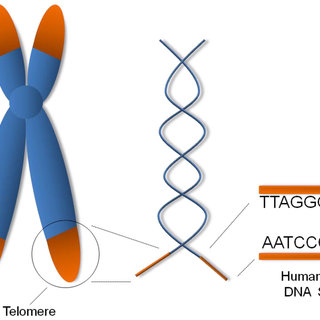In Nigeria, where resilience is woven into the fabric of society, countless women endure the silent torment of abuse. Chronic stress from such trauma doesn’t just leave emotional scars; it also impacts the very building blocks of life—our DNA. One of the most telling signs of this stress is the shortening of telomeres, the protective caps at the ends of our chromosomes. Understanding this biochemical impact is crucial for developing targeted interventions and support for these resilient women.
The Biochemical Toll of Chronic Stress on Telomere Length
Telomeres act as protective shields for our chromosomes, preventing DNA damage during cell division. Chronic stress accelerates the shortening of these telomeres, leading to premature cellular aging and increased susceptibility to chronic diseases. This process is particularly accelerated in women who have survived abuse, as their bodies are constantly in a state of heightened stress.
The Nigerian Context on Telomere Length in in Nigerian Female Abuse Survivors
In Nigeria, where abuse often goes unreported due to cultural stigma and limited access to support services, the health impacts on women are profound. These women not only battle emotional and physical scars but also face the hidden threat of accelerated aging and associated health risks.
Unveiling the Mechanisms behind the Impact of Chronic Stress on Telomere Length
Research into the impact of chronic stress on telomere length reveals several key mechanisms such as:
- Stress Hormones: Elevated levels of cortisol and adrenaline due to chronic stress accelerate telomere shortening.
- Inflammation: Persistent inflammation, a byproduct of chronic stress, damages telomeres.
- Oxidative Stress: Increased oxidative stress from chronic stress causes cellular damage, including to telomeres.
Bridging the Gap of Impact of Chronic Stress on Telomere Length in Nigerian Female Abuse Survivors with Biochemical Research
Integrating biochemical research into support strategies can provide new avenues for healing. A few of these include:
- Stress Management Programs: Implementing programs that teach stress management techniques, such as mindfulness and relaxation exercises, can help mitigate the impact of stress on telomere length.
- Nutritional Interventions: Providing access to a balanced diet rich in antioxidants can help combat oxidative stress and support telomere health.
- Mental Health Support: Expanding access to mental health services and creating safe spaces for women to seek help without stigma is crucial.
How we Can Work Towards Healing of Chronic Stress on Telomere Length in Nigerian Female Abuse Survivors
Addressing the biochemical impact of chronic stress on telomere length in Nigerian women requires a holistic approach such as :
- Community Education: Raising awareness about the health effects of chronic stress and the importance of seeking help can reduce stigma and encourage more women to seek support.
- Healthcare Access: Improving access to healthcare services, particularly in rural areas, is essential for early intervention and support.
- Support Networks: Establishing community-based support groups can provide emotional support and resources for women.
By understanding and addressing the biochemical effects of chronic stress, we can better support Nigerian women in their journey to healing. This approach not only improves individual health outcomes but also strengthens the fabric of society, fostering a safer, more supportive environment for all.
- Exploring the Neuroimaging of Infertility-Related Stress: A Nigerian Perspective - May 1, 2023
- The Silent Battle: Investigating the Biochemical Effects of Chronic Stress in Nigerian Women Facing Gender-Based Violence - March 22, 2023
- The Biochemical Effects of Estrogen Therapy in Transgender Women - March 7, 2023


